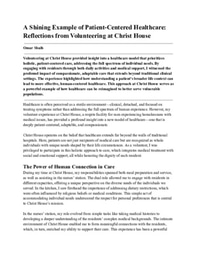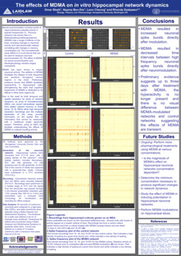LIA Week 3 and 4
As I moved into my third and fourth weeks at Christ House, I began to take on a more involved role within the organization, especially in the nurses’ station. Building on the foundation I established in the first two weeks, I began to build greater connections with the residents. While I was not able to expand my clinical responsibilities due to my scope of care as a volunteer, I enjoyed being able to help out where I could. My increased involvement has allowed me to develop a deeper understanding of the residents’ medical histories and the specific care they require.
In addition to my duties at the nurses’ station, I continued to assist with meal preparation and service. However, I found that my time spent in the nurses’ station allowed me to connect more deeply with the residents on a medical level, understanding their needs beyond just their meals. This holistic approach has been incredibly rewarding, as it has allowed me to see the impact of coordinated care on the residents’ overall well-being.
Wanting to incorporate an educational component into my LIA, I drew on my experience with Georgetown Emergency Response Medical Service and my academic background in neurobiology to facilitate a workshop focused on Traumatic Brain Injury (TBI) in prehospital settings. Unfortunately, TBI is profoundly common in individuals experiencing homelessness, and has been shown to have adverse effects on emotional regulation contributing to or exacerbating mental conditions, such as PTSD. This workshop aimed to educate fellow volunteers and staff on recognizing early signs of TBI, understanding the implications for immediate care, and improving the transition from prehospital to hospital settings. The goal was to enhance the quality of care provided to those who may have experienced TBIs, ensuring that they receive appropriate and timely interventions.


Please sign in
If you are a registered user on Laidlaw Scholars Network, please sign in